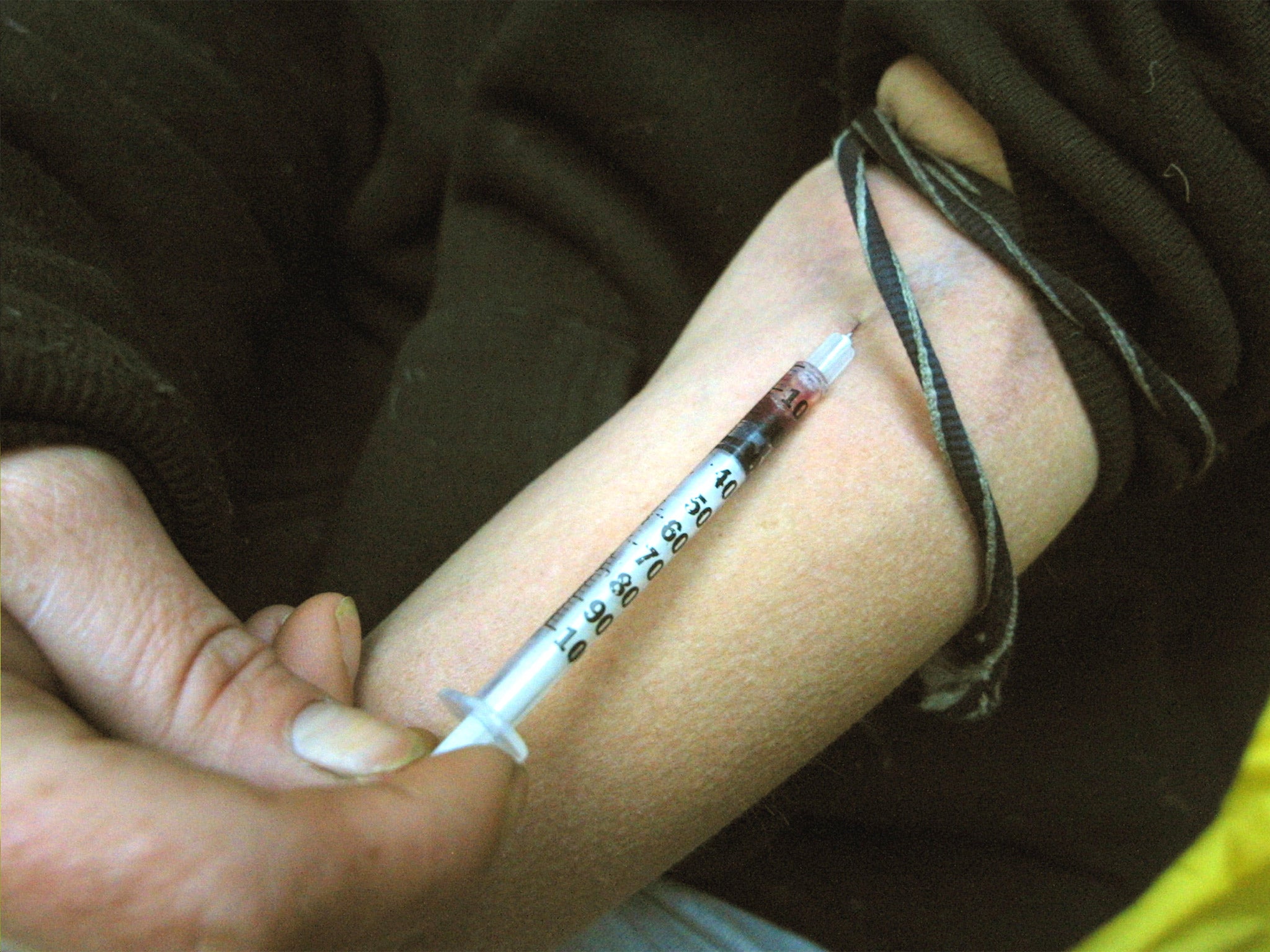'Shooting galleries': The drug plan that could be too liberal even for Brighton
Plans for Britain’s first legal ‘consumption rooms’ are unsettling the resort widely touted as a prime location

Britain could see its first so-called “shooting gallery” – somewhere drug addicts can legally use heroin and crack without fear of arrest – open within the year, under controversial plans.
The bold plan is already proving controversial in Brighton, with the seaside city being pinpointed as a possible location for the inaugural centre by an independent drugs commission, headed up by Tony Blair’s former drug-tsar Mike Trace and the crime writer Peter James.
Among the results of an extensive report by the commission, published on Thursday, is a call for legal “drug consumption rooms” where addicts can inject without fear of reprisal. The aim: to “reduce drug-related harm to the addict and the community”.
Already operating in 10 countries around the world, including Canada, Australia, Germany and Spain, drug consumption rooms vary in their exact model. Addicts are given free heroin and clean needles to ensure quality control and reduce blood-borne viruses in some centres, while others restrict access to local residents and require identification cards. A small number of facilities only allow those who inject drugs and reject other users.
Details of a British centre are yet to be ironed out, but already concerns have been raised in Brighton, despite hopes that the generally liberal residents (about 2,000 of whom are battling drug addiction) would be more open to the idea.
Resident Adam Kemeny, 36, thinks a retreat for serious users is the last thing the city needs. “I don’t like the idea of it becoming more of a destination for addicts than it already feels like it is,” he said.
For local MP Caroline Lucas, who instigated the commission a year ago, the answer is unfortunately simple – because this liberal East Sussex enclave has the market. “For some Brighton has a holiday air of tolerance,” she said. “For whatever reason we do have the unwanted unofficial title of Drugs Death Capital of England,” she said
In fact, in the past couple of years, Brighton has slipped back from the No 1 spot for drug-related deaths. A report published earlier this year by the International Centre for Drug Policy showed the rate had fallen from 16 per 100,000 adults in 2010, to nine in 2011. It now ranks eighth, with Manchester first.
Brighton resident Jack Murray, 29, said he would support anything that got users off the streets. “Addicts being arrested for minor drug possession is a waste of time and money, plus who wants to watch someone smoking rocks or shooting up on the street?”
For the commission, which also focuses on the need to knit together mental health and drug services so that people who have problems on both sides don’t fall between the cracks, this is all part of a greater plan. As results from abroad have demonstrated, sanctioned sites for drug users can minimise drug-related deaths and needle littering.
Critics in Sydney have claimed that drug-related loitering and dealing worsened near their centre. But for Ms Lucas, who has represented Brighton Pavillion since 2010 and whose Green Party is calling for an urgent review of the 1971 Misuse of Drugs Act, something has to change. “The Government’s approach to drug policy is evidence-free... Prohibition isn’t working,” she says.
She is reticent to be tied down to where exactly in Brighton these drug consumption centres should be – a sticking point for parents who fear the idea of addicts near schools or playgrounds, and residents and businesses who don’t want drug users in their neighbourhoods.
The vice-chairman of the commission, Mike Truce, said: “If the centre was inconsiderately located, it certainly wouldn’t get our support.”
“This is not just about getting activity off the street but about engaging with individuals and getting them into treatment,” he added.
Subscribe to Independent Premium to bookmark this article
Want to bookmark your favourite articles and stories to read or reference later? Start your Independent Premium subscription today.

Join our commenting forum
Join thought-provoking conversations, follow other Independent readers and see their replies